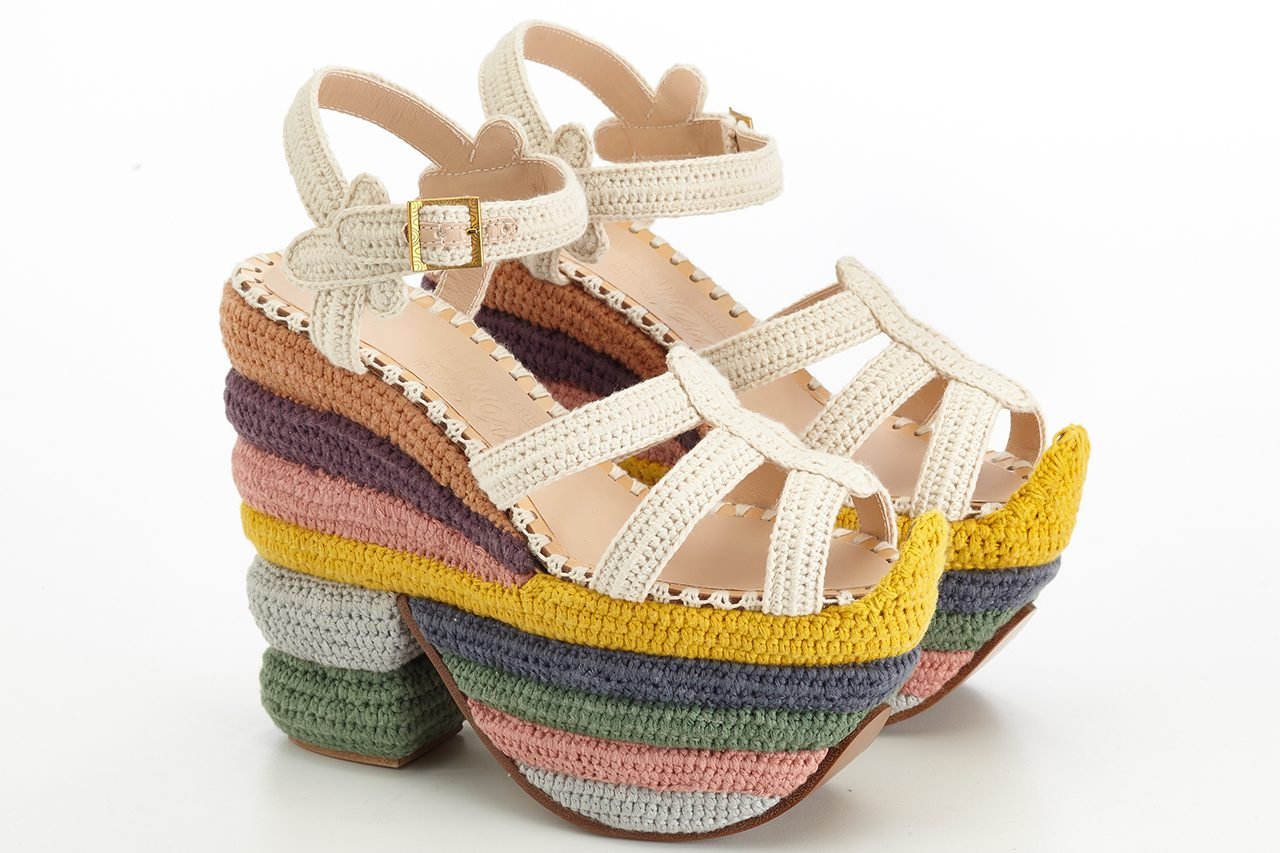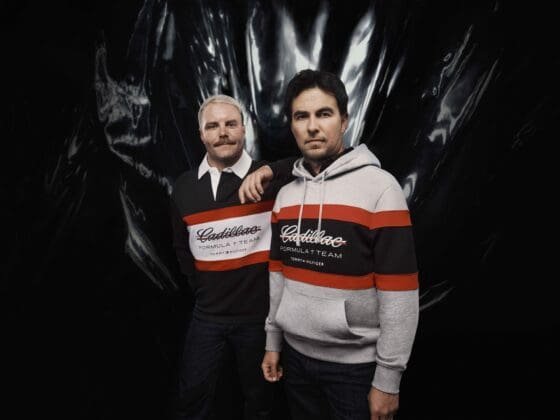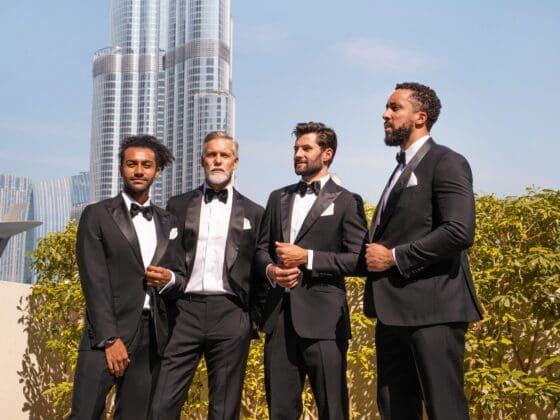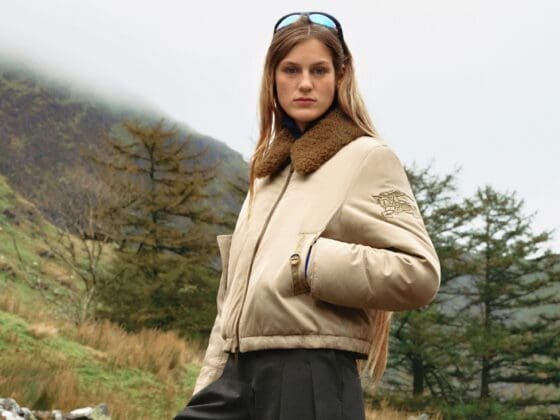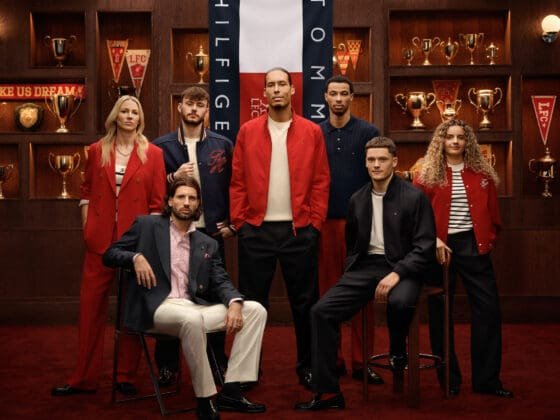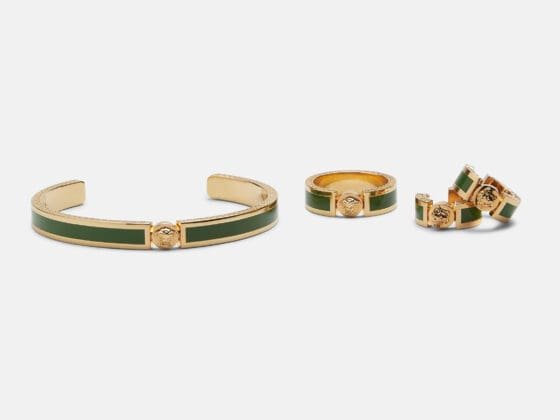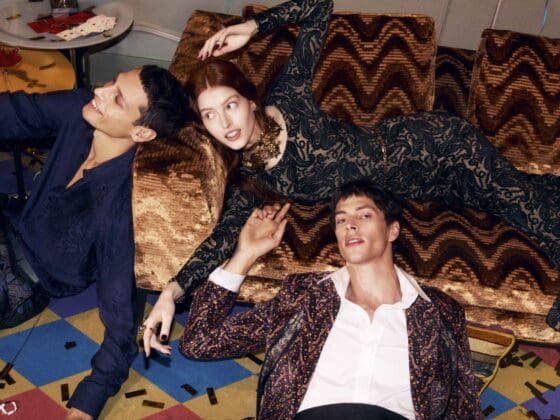The Rainbow sandal, one of the icons of the Salvatore Ferragamo brand, was originally made in suede in 1938 for -actress Judy Garland. The new limited-edition Rainbow Future shoe draws its lineage from the legendary Rainbow sandal while also exemplifying the brand’s commitment to “Made in Italy.” However, Rainbow Future’s true hallmark is that it is the first Ferragamo to fully comply with the brand’s commitment to sustainable development. The Rainbow Future shoe is, therefore, the embodiment of Salvatore Ferragamo’s past, present, and future.
Presented as a limited-edition of 100 pairs, Rainbow Future is a hand-finished platform in veritable wood and crafted in organic crocheted cotton that complies with Global Organic Textile Standard (GOTS). By applying the Layertech technology, the production of its leather lining resulted in no CO2 emission or water consumption. Its glue is water-based, brass is non-galvanized, and its sewing thread is from 100 per cent recycled material. The shoe is then packed in 100 per cent recyclable FSC cardboard shoeboxes and wrapped in 100 per cent biodegradable cotton bags. Each pair of shoes will be accompanied by a limited-edition certificate, describing its history, and its unique characteristics.
Rainbow Future has obtained the ISO 14067 certification, which means that it is possible to calculate the emissions resulting from its manufacture, and therefore, it is possible to compensate for the emissions through reforestation programmes, thus making the shoe carbon neutral. To fulfil these reforestation obligations, Salvatore Ferragamo has teamed up with Treedom, a Florence based firm specialising in agroforestry projects and CO2 compensation. Treedom will plant 100 orange trees on the outskirts of Catania, Sicily, using environment-friendly processes. A code written on each shoe’s certificate will link each pair of Rainbow Future with a particular tree. Clients will be able to follow the tree’s life and development at www.Treedom.net.
Rainbow Future is an in-depth demonstration, as well as a realisation, of Salvatore Ferragamo group’s conviction that sustainability must be an integral part of their development strategies and that they must be implemented as a long-term goal. To this end, the group implemented a corporate social responsibility (CCR) program several years ago, and in 2017, the group published its second annual Sustainability Report covering the entire Group. The report was prepared in accordance with the Sustainable Development Goals (SDGs) promoted by the United Nations. Here are some of the highlights from Ferragamo’s 2017 CCR.
The Group’s Sustainability Plan sets six main targets, by which, specific initiatives will be pursued over three years. The macro-areas on which the group’s commitment focuses are Made in Italy; Products and relationships with suppliers; Territory and Culture; Environment; and People.
“Our people are the very essence of our Brand, and this is why we are committed to celebrating their professionalism and individuality, offering them opportunities for growth, well-being and respect,” stated Ferruccio Ferragamo, the Group’s Chairman in the CCR report. This commitment to the health and safety of its people, at all its production sites and stores in Italy, resulted in the awarding of the Occupational Health and Safety Assessment Series (OHSAS) 18001 certification in 2017. It has drawn up plans to extend the scope of this certification in the forthcoming years.
On the environmental protection front, the group focused on reducing consumption and qualifying for important environmental certifications for its facilities. One of these facilities is the new logistics hub under construction in Florence which has been designed to be efficient enough for a LEED Platinum certification. Another is the Modelleria for men’s and women’s leather goods which opened last November. This state-of-the-art atelier underwent comprehensive redevelopment and renovation to minimise energy consumption and emissions, to optimise energy absorption and to use renewable energy via a new solar power system. In October 2017, the historic Canton Road store in Hong Kong received LEED Gold certification, followed by the Troy store in Michigan, which received a LEED Silver certification.
In November 2017, the group joined the Alleanza per l’Economia Circolare, an Italian alliance promoting circular economy. Ferragamo’s approach in this regard is to make its products last longer, by investing in quality and thereby reducing waste. Salvatore Ferragamo sees its “Made in Italy” commitment as a responsible way of doing business because it rewards local artisanal excellence which in turn generates positive value and protects Italy’s unique know-how and heritage.
“My father used to say that there is always something more beautiful and more perfect to create. More than an affirmation, this is a call to action to strive for continuous improvement and raise the bar even higher, to promote a responsible business every day, based on respect for people, the territory, the environment and the community.” – Ferruccio Ferragamo, Chairman, Salvatore Ferragamo Group
In September 2018, Salvatore Ferragamo took part in the second edition of the Green Carpet Fashion Awards, in Milan, dedicated to celebrating outstanding achievements of the fashion and luxury industry in the field of sustainability. Paul Andrew, Women’s Creative Director of Salvatore Ferragamo, accompanied Oscar-winning actress Julianne Moore on the ‘green’ carpet. She wore a long jersey dress specially created for the occasion, made of perPETual, an innovative material made from plastic recovered from the seas and transformed into yarn through a patented polymerisation process. The dress was enriched by a handbag, a pair of sculpted heel sandals in GOTS-certified silk, and metal-free leather certified Oekotex 100 ‘first class.’ For its efforts, Salvatore Ferragamo was presented with another feather for its sustainability hat: the Art of Craftsmanship prize.
“To receive this award is a great honour for me and my family,” said Ferruccio at the ceremony. “Since the beginning of his career, my father was greatly interested in alternative materials, which he always interpreted in creative, new ways. Today, to their unexpected charm we must add a characteristic of paramount importance – responsible innovation. The creation of sustainable value for the future of the planet and, for all of us is positive and necessary for every company.”


